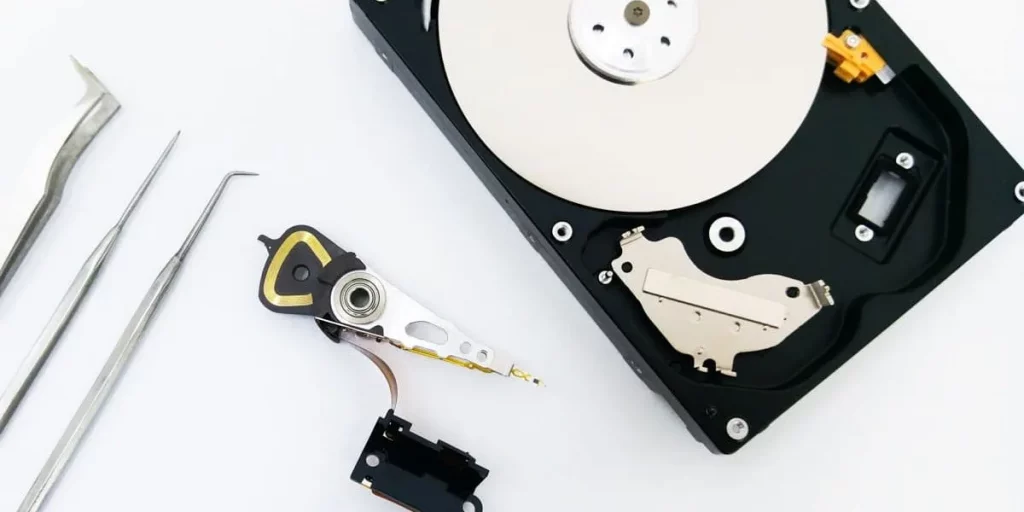A hard drive, USB key, memory card, or any other medium is considered faulty when this digital data storage unit no longer works properly, and it is impossible to consult its content. But let’s look at the more specific case of hard drives. Hard drive failures can occur for various reasons, from hardware quality and life expectancy to human handling errors.
There are four main types of failure. Firmware failures make the hard drive unwritable and prevent it from interacting correctly with the electronic losses caused by damage to the hard drive controller board. Mechanical failures occur when the internal components of the hard drive fail. Logical failures related to the corruption of data stored on the hard drive. Here is the list of the six sources of failure that could require you to perform data recovery.
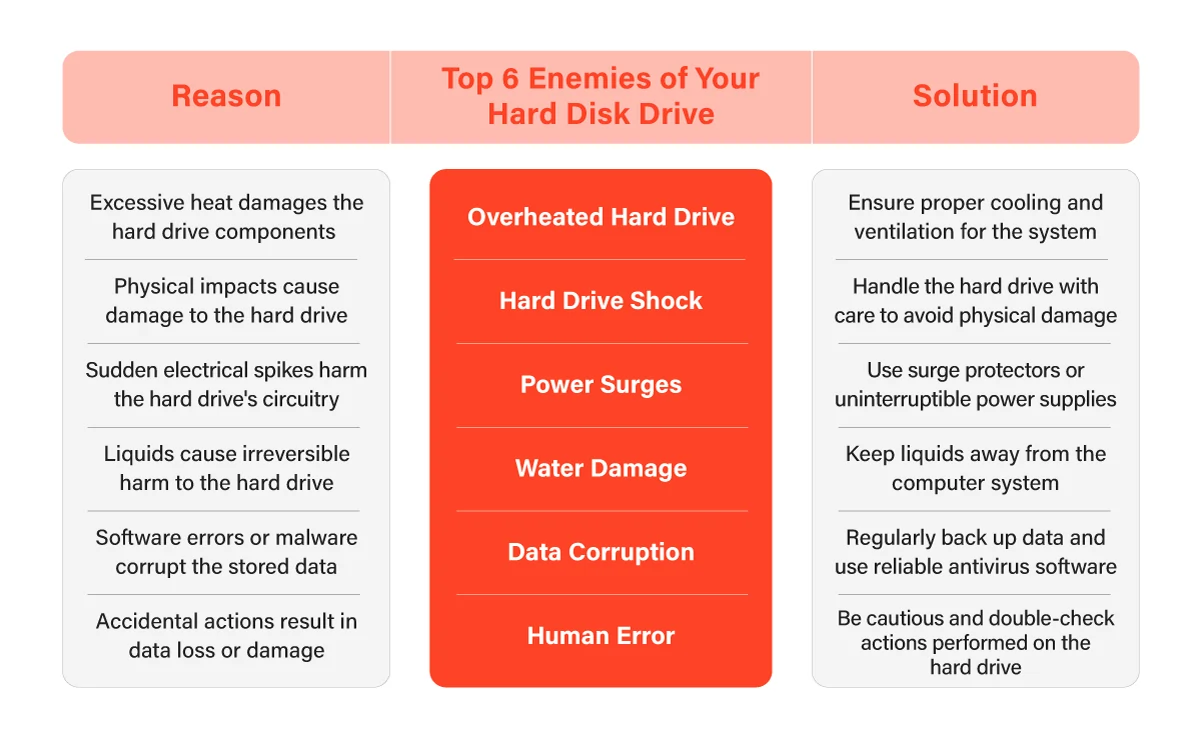
Overheated Hard Drive
The number one cause of hard drive failure is hardware overheating. This can be caused by an unsuitable ventilation or cooling system or a strong release of external heat, such as that which can cause a fire.
When a hard drive overheats, it can cause damage to the delicate components inside, leading to data loss and other issues. Overheating can occur for various reasons, including an inadequate cooling system, dust buildup inside the computer, or exposure to external heat sources such as direct sunlight or a nearby fire.
One of the most common causes of hard drive overheating is an insufficient ventilation or cooling system inside the computer. When the temperature inside the computer case rises too high, the hard drive can become overheated, causing damage to the components inside. To prevent this, it’s important to ensure that the computer has a sufficient cooling system, including fans or liquid cooling, to keep the temperature inside the case at a safe level.
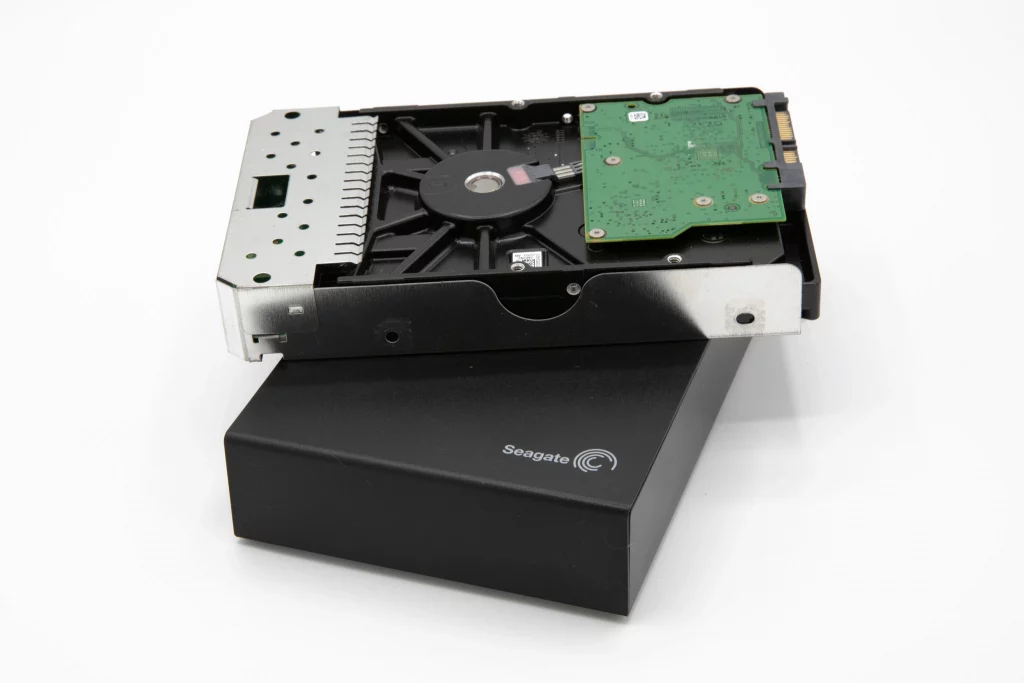
Another cause of hard drive overheating is the buildup of dust and debris inside the computer case. This can block airflow, causing the temperature inside the case to rise and leading to hard drive overheating. To prevent this, it’s important to regularly clean the inside of the computer case, including the fans and other components, to remove any dust or debris that may have accumulated.
Hard Drive Shock
Hard drive failure can result from a physical force external to the hardware. So, our first advice is not to spend your nerves on your computer! Any shock can damage the physical structure of the disk.
If the computer is in use at the time of impact, the read and write heads may touch or pinch the drives, causing severe damage to the magnetic surfaces of the platters, which store data. When the impact occurs while the external hard drive or the computer is turned off, the hard drive is more protected, but a strong shock may cause similar failures.
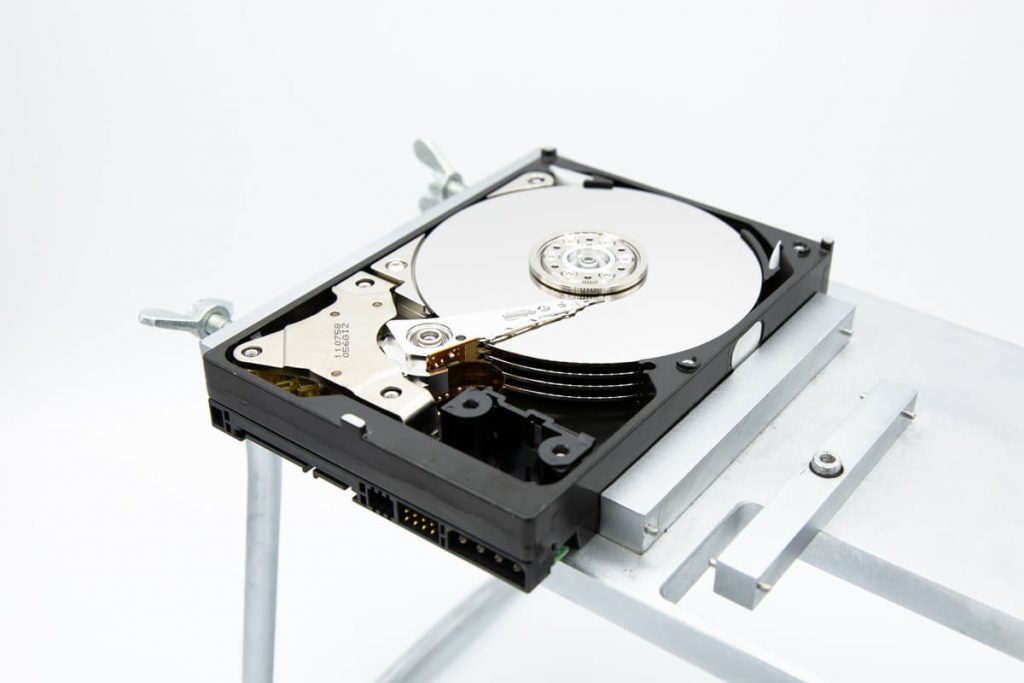
It’s important to note that hard drives are designed to be shock-resistant to some extent, but they have limits. Manufacturers often specify the maximum shock tolerance of their hard drives in terms of the maximum g-force they can withstand before experiencing damage.
For example, some hard drives may be rated to withstand shocks of up to 300 Gs.
However, even with this shock resistance, handling your computer and hard drives with care is still important to avoid damage from impacts. This includes avoiding dropping your laptop or external hard drives and taking care when transporting your computer or hard drives to prevent them from being jostled or bumped.
Power Surges
Voltage variations (power surges or brownouts) can be caused by lightning, internal interference in the electrical network, or any other event causing a power outage and forcing your equipment (computer or external hard drive) to shut down. This type of event can lead to data loss when the read and write heads do not work properly and complete computer failure. We advise you to purchase an inverter.
In addition to voltage variations in the electrical network, another potential cause of power surges that can damage your computer or external hard drive is a power surge on a USB port.
This can occur when a sudden spike in electrical current occurs on the USB port, often due to faulty wiring or power supply issues.
When a power surge occurs on a USB port, it can cause damage to the components of your computer or external hard drive, leading to data loss or complete system failure. This can be especially problematic if you are using an external hard drive for backup purposes, as a power surge can cause damage to both your primary hard drive and your backup storage.
Water Damage
Moisture caused by flooding or spilling liquid on a computer or external hard drive can have serious consequences. The chassis that encases the hard drive is not designed to prevent liquid ingress. The results can range from simple oxidation to creating mini-short circuits internally. In both cases, the disc suffers damage requiring passage in a clean laboratory room.
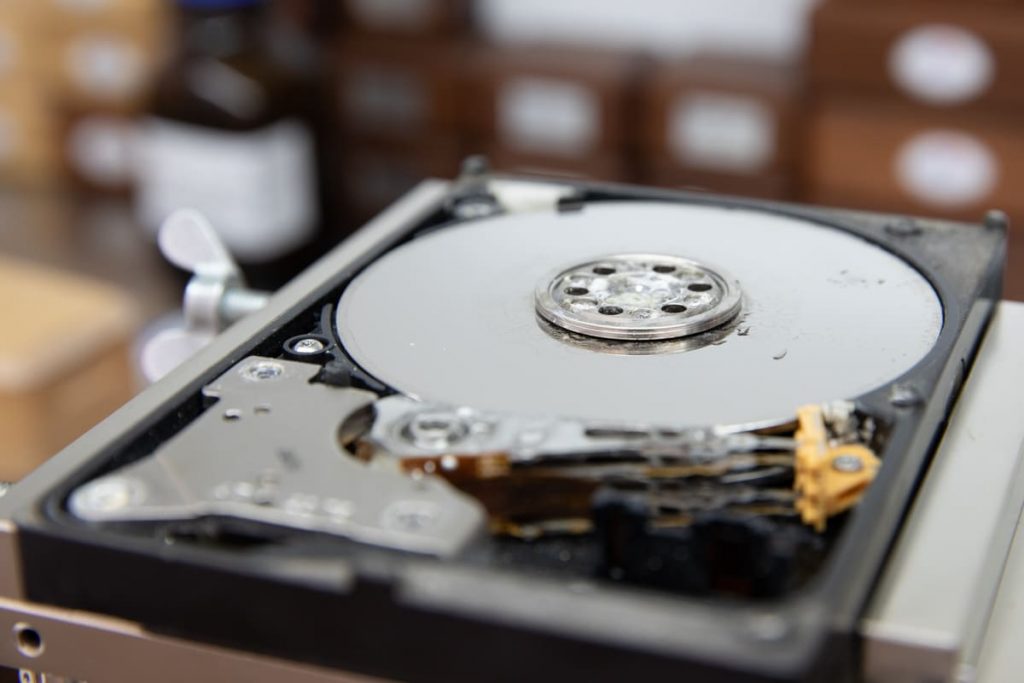
When a computer or external hard drive has been damaged by water, it’s important to take immediate action to prevent further damage and to seek professional help for water damage repair.
Water damage can cause a range of issues with your computer or hard drive, from simple oxidation of components to short circuits that can damage or destroy the device.
To minimize the damage caused by water ingress, it’s important to turn off the computer or external hard drive immediately and to disconnect it from any power sources. You should also avoid attempting to power on the device or connect it to a computer, as this can cause further damage.
Data Corruption
Power outages and accidental shutdown of a computer or external hard drive can contribute to file corruption and cause damage to the drive. Failing to close an application properly, shutting down a laptop before completely shutting down files, running programs, or installing new software are all actions that can lead to corrupted files. We then speak of logical failures.
Data corruption can be a serious issue for computer users, resulting in the loss or corruption of important files and data. One of the most common causes of data corruption is power outages and accidental shutdowns of a computer or external hard drive.
When a computer or hard drive is not shut down properly, data may be left in an inconsistent state, leading to file corruption and other issues.
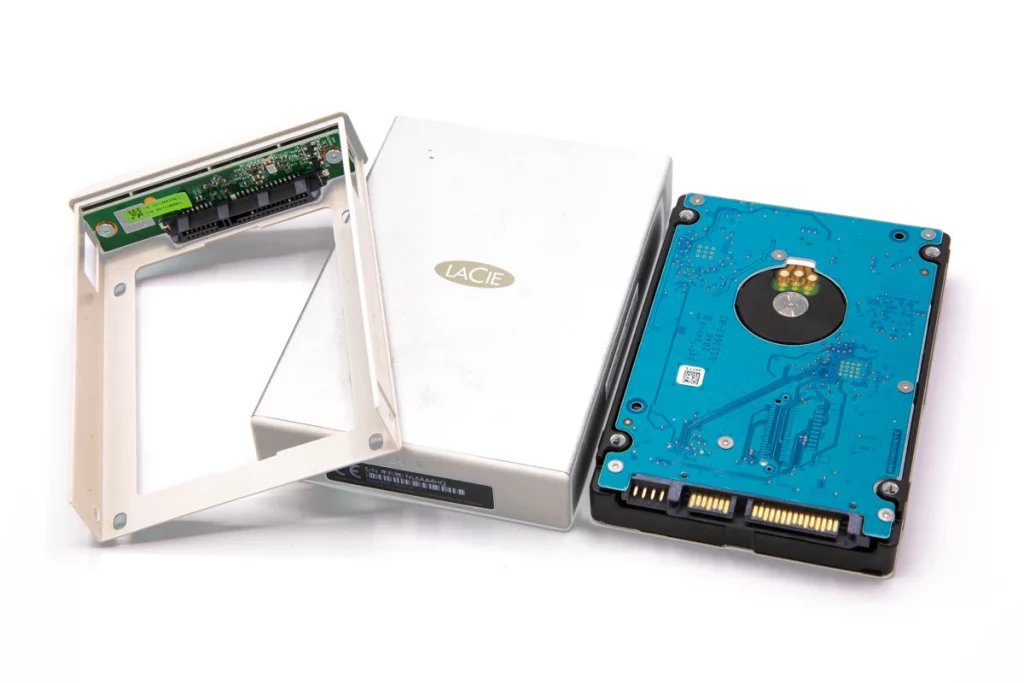
Human Error
The action of an individual on the file system can alter the functions of a hard disk. It is common for some files necessary for the hard drive operation to be accidentally erased: either by direct human manipulation or by improper software installation. Activities carried out during a forensic scientific investigation of a computer can also compromise the functioning of the hard drive.
Human error can also occur when attempting to recover lost or deleted data from a hard drive. It’s important to approach data recovery with care, as any attempts to recover data can potentially cause further damage or data loss if not done properly. In some cases, attempting to recover data using off-the-shelf data recovery software can overwrite important data or cause further file system corruption. This can make it much more difficult, if not impossible, to recover the data using professional data recovery services. To prevent further damage to your hard drive and to increase the chances of successful data recovery, it’s important to seek the assistance of a professional data recovery service if you have experienced data loss or corruption.
Other actions that can lead to file corruption and logical failures include failing to close an application properly, running multiple programs simultaneously, or installing new software that conflicts with existing programs or system settings. These issues can cause data to be written incorrectly to the hard drive, leading to file corruption and other issues.
Recovering lost data can sometimes be time-consuming and expensive. By regularly backing up your data and adopting a few preventive habits, you will avoid contacting a data recovery company to find your precious information. Here are six causes that can destroy your hard drive in seconds.
If you are the victim of data loss, we invite you to read the following article: What to do in the event of a breakdown?
Similarly, if our offers convince you, we invite you to entrust us with your damaged hard drive. Your satisfaction is our priority. We have already been victims of data loss and are aware of the worry and dismay this can represent. Know that we are here to help you maintain your serenity.
Frequently Asked Questions
What happens if a hard drive overheats?
Data loss, drive deterioration, and performance issues can occur as a result of overheating, which may cause harm to the magnetic media and drive components. It is crucial to ensure adequate cooling measures.
Can a hard drive last 20 years?
Although not a common occurrence, the average lifespan tends to range from 3 to 5 years due to wear, usage, and various other factors. Ensuring regular backups is of utmost importance.
How long can a hard drive survive in water?
Hard drives are not resistant to water and can be easily damaged by water exposure, leading to data loss and potential risks.
What happens if your hard drive gets wet?
Exposure to water can lead to the corrosion and damage of the drive’s internal components, which may result in data loss. It is advisable to refrain from powering it on and instead seek assistance from a professional and ensure proper drying if attempting data recovery.
